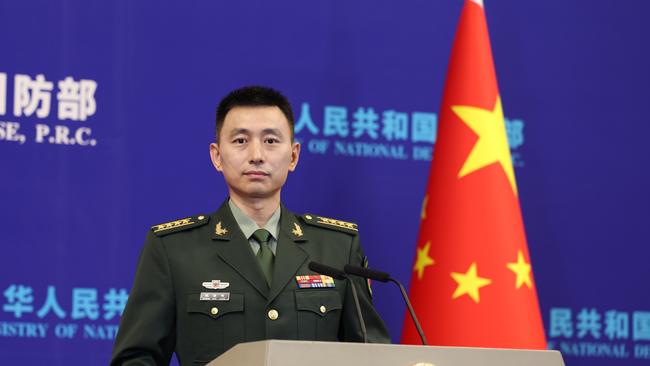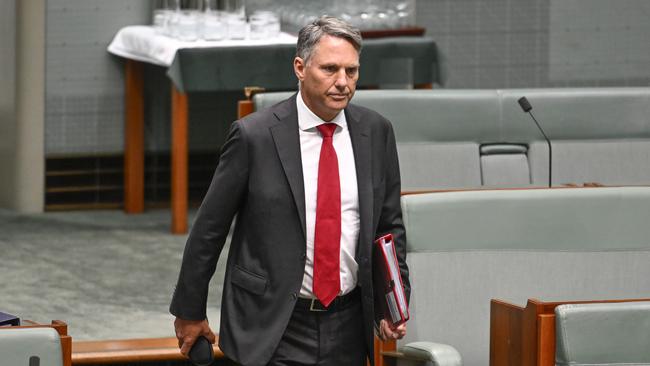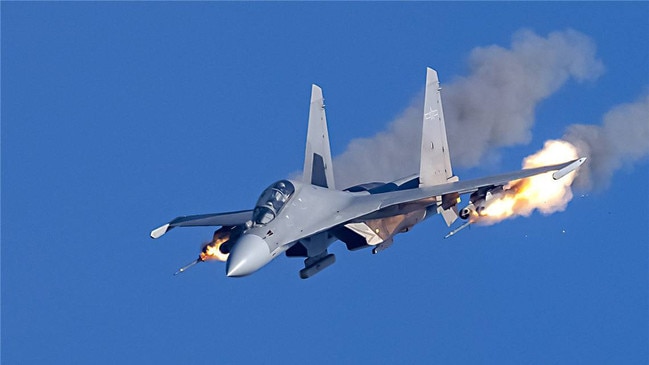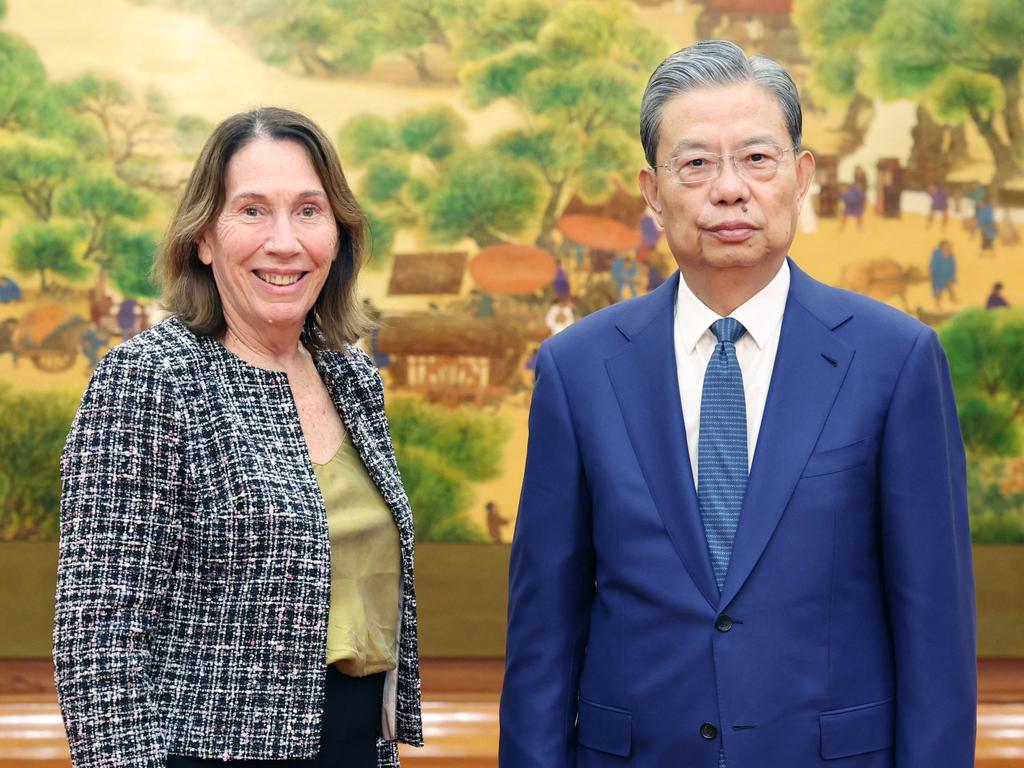China accuses Australia of being a ‘thug’ in the South China Sea after military fired flares at RAAF aircraft
Beijing’s extraordinary outburst comes after Defence Minister Richard Marles said China’s persistent and dangerous military behaviour could end in fatalities.

China’s Defence Ministry late on Friday said that the Australian government had “deliberately infringed upon China’s rights and interests in the South China Sea, and even complained first and spread false narratives” in its comments about the harassment of a RAAF surveillance plane by two People’s Liberation Army Air Force fighters.
Chinese Defence Ministry spokesman Zhang Xiaogang said an Australian surveillance plane had “intruded into other people’s home” and that the People’s Liberation Army Air Force’s “expulsion of them [was] completely reasonable, legal and beyond reproach”.
“We urge Australia to abandon its fantasy of speculation and adventure, strictly restrain the actions of its frontline naval and air forces, and not be willing to be a follower and thug, stirring up trouble in the South China Sea and harming others and itself,” said Senior Colonel Zhang.
The escalation of Beijing’s rhetoric came as some nationalistic voices on China’s internet said the next Australian plane to contest Chinese territorial claims should be shot down.
It followed an earlier rebuffing of Canberra’s complaints by China’s Foreign Ministry, which claimed a RAAF surveillance plane had “undermined China’s national security” after a Chinese J-16 fighter shot flares within 30m of an RAAF P-8A Poseidon on Tuesday.
Similar encounters have continued during the entire three-year process of the Albanese government’s stabilisation efforts with China. Analysts are warning that the dangerous Chinese military behaviour could end in Australian fatalities.
“It may result in a real tragedy,” Bates Gill, a senior fellow at the National Bureau of Asian Research, told The Australian.
Defence Minister Richard Marles acknowledged the “increasing risk” being faced by Australian military personnel operating in contested territory near China’s officially recognised borders.
Mr Marles said he was “not sanguine” about the possibility that Australians could die in a similar exchange. “But it’s really important work to do. I mean, why we’re there and the reason our navy is there as well is to assert the rules-based order,” he said.

China has rebuffed Australia’s efforts to get the People’s Liberation Army to rein in their behaviour, telling Australian counterparts that the problem would not exist if Australia kept its military away from Chinese territory.
Mr Gill, author of Daring to Struggle: China’s Global Ambitions under Xi Jinping, said the PLA officers were following orders set by China’s leadership.
“From on high comes the signal: this is ours – and we need to remind America and America’s allies that this is Chinese territory,” he said.
Since coming to government in 2022, Mr Marles has brought up encounters with the PLA that Canberra has thought dangerous at each of his annual meetings with China’s Defence Minister. While the number of Australia-China defence dialogues has grown over the period, the PLA’s behaviour has persisted.
The Chinese Foreign Ministry on Thursday evening said it had lodged “serious protests” about the Australian plane.
“The Australian military airplane deliberately intruded into China’s airspace over Xisha Qundao without China’s permission. Such a move violated China’s sovereignty and undermined China’s national security,” said China’s foreign ministry spokesman Guo Jiakun.
“The Chinese side took legitimate, lawful, professional and restrained measures to expel the airplane,” Mr Guo said.
The Australian aircraft was operating in international airspace at the time.
Australia, along with many fellow American allies, flies plane and sails vessels in contested areas in the South China Sea to push back on China’s sweeping claims of ownership, which were rejected by the Permanent Court of Arbitration in The Hague in 2016.
Some in Beijing describe Australia as “two faced” for claiming to want to improve relations with China, while simultaneously working with America, allies and partners in China-focused military groupings.
Chinese internet commentators vented anger at Australia in response to news of the episode.
“During the Chinese New Year, beef, crayfish and red wine sales increased, and now they have money in their pockets, they have started to be anti-China pioneers and expressed their position to their masters,” said one popular comment.

Many demanded an even stronger response. “Shoot it down!” said another popular comment.
A poll last year by Chinese university Tsinghua’s Center for International Security and Strategy found more people in China thought the superpower should use its national strength in disagreements with other countries, rather than rely on international law.
China has also produced a spate of big-budget movies centred around PLA pilots and sailors who are defending the country’s borders. A blockbuster in 2023 called Born to Fly (described by many as China’s Top Gun), centred on repelling foreign planes from flying near China.
Another called Operation Hadal about submariners defending China’s borders from foreigners was one of the most heavily promoted films in cinema this Chinese New Year.
Mr Gill said there was no downside to striking hawkish and nationalist positions in China today.
“And conversely, the voices of reason, the ‘restrainers’, if that’s the right word, they are going to get shouted down. The incentives are entirely angled to the more aggressive, more assertive response,” he added.






To join the conversation, please log in. Don't have an account? Register
Join the conversation, you are commenting as Logout